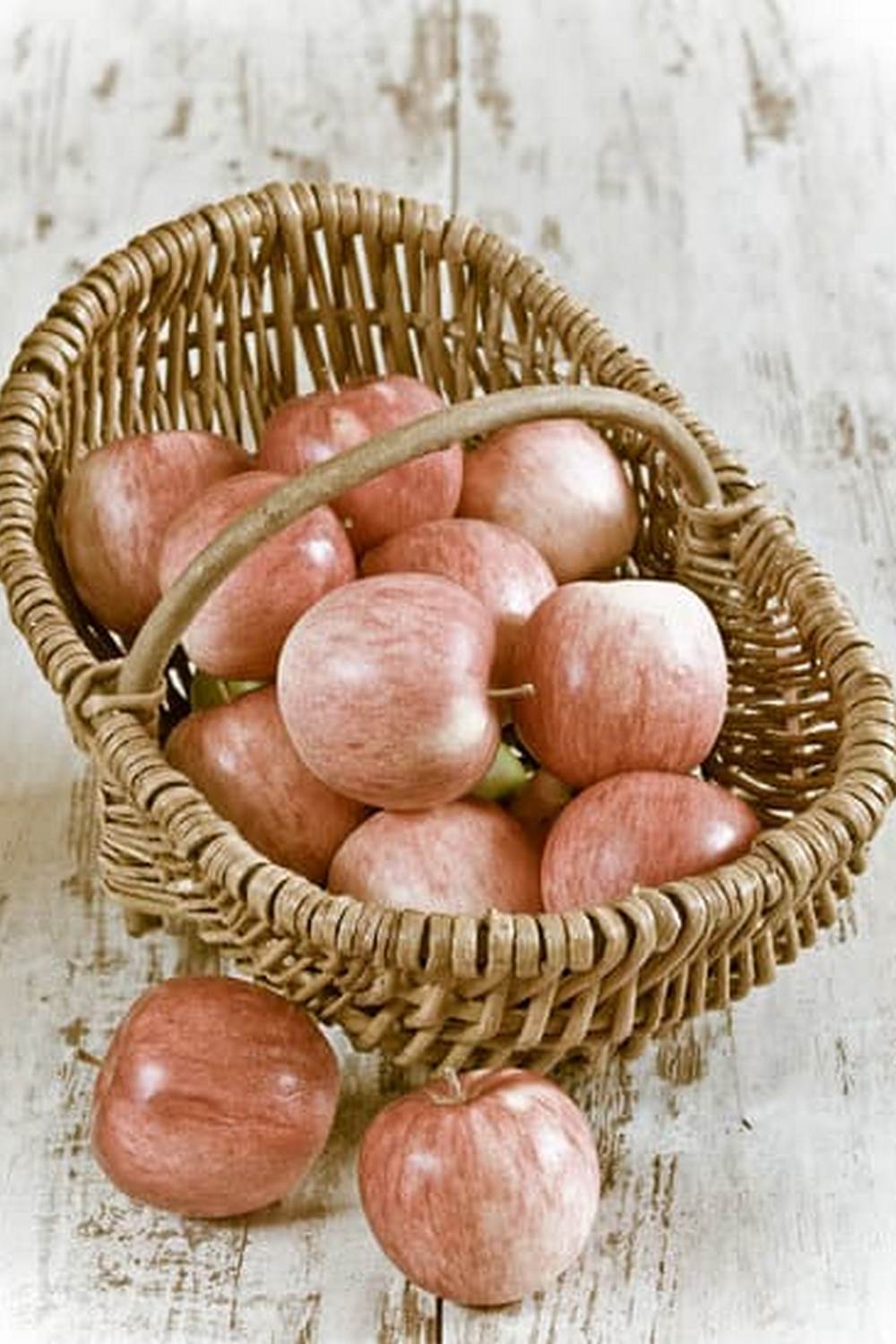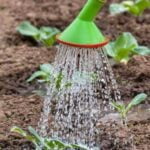As gardeners strive to maintain healthy and productive vegetable gardens, the question of what weed killer is safe for vegetable gardens becomes paramount. Weeds compete with vegetables for essential nutrients, water, and sunlight, ultimately impacting the overall yield. However, the improper use of chemical weed killers can pose risks to human health, the environment, and contaminate produce. Finding a safe weed killer that effectively controls weeds while being gentle on vegetables is crucial for sustainable gardening practices.
Using herbicides in vegetable gardens can be a double-edged sword. While they offer an efficient way to combat weeds, many conventional herbicides contain harmful chemicals that may leach into the soil and potentially harm crops or pose health risks when consumed.
This has prompted gardeners to explore alternative options like organic weed killers or products specifically formulated for safe use in vegetable gardens. Understanding different types of weed killers, such as pre-emergent and post-emergent varieties, allows gardeners to make informed decisions based on their specific needs and concerns.
Before selecting a weed killer for your vegetable garden, several factors must be considered to ensure its safety and effectiveness. From soil type and vegetable variety to application methods and environmental impact, each aspect plays a vital role in determining the best-suited product for your garden. By exploring safe weed killer options containing natural ingredients and following proper application techniques, gardeners can effectively manage weeds without compromising the health of their vegetables or themselves.
Understanding Different Types of Weed Killers
When it comes to choosing a weed killer for your vegetable garden, it is essential to understand the different types available on the market. Herbicides are chemical substances designed to control or destroy unwanted plants, including weeds. Organic weed killers, on the other hand, are products made from natural ingredients such as vinegar, citrus oil, or corn gluten meal. These organic options are considered safer for the environment and may be preferable for use in vegetable gardens.
Pre-emergent weed killers are designed to prevent weed seeds from germinating in the soil. This type of product is applied before any weeds have emerged and can provide long-lasting protection against invasive plants. Post-emergent weed killers, on the other hand, target weeds that are already growing in your garden. These products are applied directly to the leaves of the unwanted plants and work to kill them at their source.
It is crucial to consider several factors before selecting a weed killer for your vegetable garden. Factors such as soil type, type of vegetables grown, application method, and potential impact on the environment should all be taken into account.
When choosing a safe weed killer for your vegetable garden, look for products that specifically state they are safe for use around edible crops. Products containing natural ingredients like vinegar or essential oils can be effective at controlling weeds without posing a risk to your vegetables.
Factors to Consider Before Choosing a Weed Killer
Soil Type
One of the first considerations when choosing a weed killer for your vegetable garden is the type of soil you have. Different weed killers may be more effective in certain types of soil, so it’s essential to understand your soil composition before making a selection.
Some products may work better in sandy soil, while others are designed for clay or loamy soil. Conducting a soil test can help you determine the pH levels and nutrient content of your soil, which can also impact the effectiveness of weed killers.
Vegetable Type
Not all vegetables react the same way to weed killers, so it’s crucial to consider the types of vegetables you are growing in your garden. Some plants may be more sensitive to certain herbicides or chemicals commonly found in weed killers. For example, nightshade vegetables like tomatoes and peppers are known to be more susceptible to damage from certain herbicides. Researching which weed killer is safe for specific vegetable types can help you avoid inadvertently harming your crops.
Potential Impact on the Environment
In today’s environmentally conscious world, considering the potential impact of any product on the environment is crucial. When selecting a weed killer for your vegetable garden, look for products that are labeled as safe for use around food crops and that break down quickly without leaving harmful residues in the soil.
Organic weed killers are often a preferred choice for eco-conscious gardeners since they are derived from natural ingredients like vinegar or essential oils. Additionally, following proper application techniques and dosage recommendations can help minimize any negative effects on the environment.
Considering these factors before choosing a weed killer for your vegetable garden can help ensure that you select a product that is safe for both your crops and the environment. By understanding how different products interact with varying soil types, vegetable types, and application methods, you can make an informed decision that promotes healthy growth in your garden while effectively managing weeds.
Remember that when in doubt about which weed killer is safe for vegetable gardens, consulting with a gardening expert or extension service can provide valuable guidance tailored to your specific needs and circumstances.
Safe Weed Killers for Vegetable Gardens
When it comes to maintaining a healthy vegetable garden, using the right weed killer is essential. One of the most common concerns among gardeners is finding a weed killer that is safe to use around their edible plants. Fortunately, there are several options available that can effectively control weeds without harming your vegetables.
One recommended weed killer that is safe for vegetable gardens is vinegar-based herbicides. These products work by desiccating the weeds, causing them to wither and die. Vinegar-based weed killers are non-toxic and environmentally friendly, making them a popular choice among organic gardeners. Another safe option is corn gluten meal, which acts as a natural pre-emergent herbicide, preventing weed seeds from germinating.
In addition to vinegar-based herbicides and corn gluten meal, there are other safe weed killers on the market that are suitable for vegetable gardens. Products containing natural ingredients such as citric acid or essential oils can be effective in controlling weeds while being gentle on your crops. Before using any weed killer in your vegetable garden, always read the label carefully to ensure it is safe for use around edible plants.
| Weed Killer | Type |
|---|---|
| Vinegar-based herbicides | Non-toxic and environmentally friendly |
| Corn gluten meal | Natural pre-emergent herbicide |
| Products containing natural ingredients (citric acid or essential oils) | Gentle on crops |
Application Techniques
When it comes to keeping your vegetable garden free of weeds, choosing the right weed killer is crucial. But the question remains: what weed killer is safe for vegetable gardens? It is essential to select products that are specifically formulated to target weeds while being gentle on your precious crops. Opting for weed killers with natural ingredients can be a great way to ensure that you are not introducing harmful chemicals into your garden.
One safe and effective option for vegetable gardens is using organic weed killers. These products typically contain natural ingredients like vinegar, citrus oil, or essential oils, which can help control weeds without posing a risk to your vegetables. Before applying any weed killer, make sure to read the label carefully and follow the manufacturer’s instructions to ensure proper usage.
To apply weed killer safely in your vegetable garden, it is important to consider the weather conditions. Ideally, choose a calm day with no wind to prevent the product from drifting onto your crops. Use a targeted approach by spraying the weed killer directly on the leaves of the weeds you want to eliminate.
Be careful not to oversaturate the area and avoid spraying near desirable plants. Always wear protective gear such as gloves and goggles when handling weed killers to protect yourself from exposure.
| Tip | Details |
|---|---|
| Choose Organic Weed Killers | Opt for products with natural ingredients for safe weed control in vegetable gardens |
| Mind the Weather | Avoid windy days when applying weed killer and ensure no rain is expected within at least 24 hours |
| Protect Yourself | Wear gloves and goggles while handling any type of herbicide or weed killer |
Best Practices for Weed Control
When it comes to maintaining a healthy and thriving vegetable garden, weed control is essential. Weeds not only compete with your vegetables for nutrients and water but can also harbor pests and diseases.
Using the right weed killer in your vegetable garden is crucial, but it’s equally important to implement best practices for weed control to prevent weeds from growing in the first place. Here are some tips on how to effectively manage weeds in your vegetable garden:
- Mulching: One of the most effective ways to keep weeds at bay is by mulching your vegetable garden. Organic mulches like straw, wood chips, or grass clippings not only suppress weed growth but also help retain moisture in the soil. Make sure to apply a thick layer of mulch around your plants to prevent sunlight from reaching weed seeds and inhibiting their growth.
- Crop Rotation: Rotating your crops each season can help disrupt the life cycles of weeds and reduce their prevalence in your vegetable garden. Different vegetables have different nutrient needs, so rotating crops helps maintain soil fertility while also preventing the buildup of pests and diseases that may be specific to certain plants.
- Proper Watering: Consistent and proper watering practices can also help prevent weed growth in vegetable gardens. Watering your plants deeply and infrequently encourages deep root growth, helping them outcompete weeds for water and nutrients. Avoid overhead watering that can promote weed germination by keeping the soil surface moist.
By incorporating these best practices for weed control into your gardening routine, you can minimize the need for weed killers and create a healthier environment for your vegetables to thrive. Remember that prevention is always better than cure when it comes to managing weeds in your vegetable garden.
Common Mistakes to Avoid
When it comes to maintaining a vegetable garden, using weed killer is often a necessary step to keep unwanted vegetation from overtaking your crops. However, many gardeners make common mistakes when applying weed killer that can potentially harm their vegetables or the environment. It is crucial to be aware of these pitfalls and take the necessary precautions to avoid them.
Here are some common mistakes to avoid when using weed killer in vegetable gardens:
- Overapplication: Applying too much weed killer can not only harm your vegetables but also affect the soil and surrounding environment. Always follow the recommended dosage on the product label and avoid excessive spraying.
- Using the wrong type of product: Not all weed killers are safe for vegetable gardens. Choosing a product that is specifically designed for use around edible plants is essential. Look for natural or organic options that are labeled as safe for use in vegetable gardens.
- Not considering the timing of application: Applying weed killer at the wrong time can decrease its effectiveness and even damage your crops. Make sure to follow the instructions on when to apply the product, taking into account factors such as weather conditions and plant growth stage.
By being mindful of these common mistakes and taking the necessary precautions, you can effectively control weeds in your vegetable garden without compromising the health of your crops or the environment. Remember, always prioritize safety and choose a weed killer that is safe for your vegetable garden.
Now that we have covered some common mistakes to avoid, let’s delve deeper into how to properly apply weed killer in vegetable gardens to ensure its effectiveness while protecting your veggies from harm.
Case Studies
In conclusion, choosing the right weed killer for your vegetable garden is crucial to maintaining a healthy crop while keeping unwanted plants at bay. By understanding the different types of weed killers available, such as herbicides, organic options, and pre-emergent or post-emergent products, you can make an informed decision on what will work best for your specific garden needs.
Factors like soil type, the type of vegetables you are growing, application method, and potential environmental impact should all be taken into consideration before selecting a weed killer. It is essential to prioritize the safety of your crops and the surrounding environment when making this decision.
By following recommended safe weed killers containing natural ingredients and applying them correctly using proper techniques, you can effectively control weeds in your vegetable garden without harming your plants. Remember to always read and follow the instructions on the product label carefully to ensure successful weed control while maintaining a healthy growing environment for your vegetable crops. And now you know what weed killer is safe for vegetable gardens.
Frequently Asked Questions
Can You Use Weed Killer in a Vegetable Garden?
It is not recommended to use traditional weed killers in a vegetable garden as they can harm your vegetables and contaminate the soil. Instead, opt for organic weed control methods to keep your garden safe and healthy.
What Homemade Weed Killer Is Safe for Vegetables?
One safe homemade weed killer for vegetables is a mixture of white vinegar, salt, and dish soap. This natural solution can help kill unwanted weeds without harming your vegetable plants. Just be sure to apply it carefully to avoid contact with your crops.
How Do I Kill Grass and Weeds in My Vegetable Garden?
To effectively kill grass and weeds in your vegetable garden, you can manually remove them by pulling them out by hand or using a hoe. Mulching around your plants can also help suppress weed growth by blocking light and hindering their germination.
Additionally, you can try using a corn gluten meal as a natural pre-emergent herbicide to prevent weed seeds from sprouting. Regular maintenance and diligence in removing weeds promptly will help keep your vegetable garden healthy and thriving.

If you’re looking to get into vegetable gardening, or are just looking for some tips on how to make your current garden better, then you’ve come to the right place! My name is Ethel and I have been gardening for years. In this blog, I’m going to share with you some of my best tips on how to create a successful vegetable garden.





